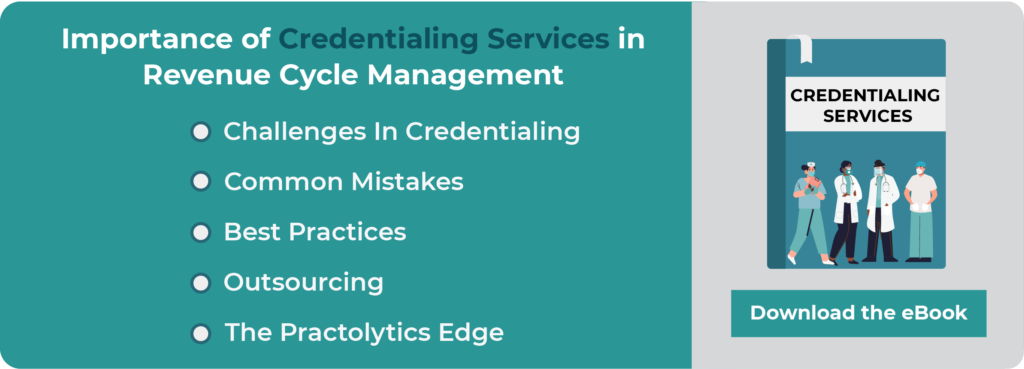Denial Prevention is the New Denial Management
There are many factors that can cost your practice revenue and profits. Any mistake at any step of the billing process could result in delayed payments or even claim denials. This will be detrimental not only to the success of your practice but also to its growth. Claim denials are part and parcel of the billing process and require active denial management processes in place. You can have guidelines in place to help your staff deal with the denials as they happen but those are of no use in preventing the denials.
A rising trend in denial management has been denial prevention. Instead of focusing on claim management after it has already been denied or rejected by the payer, it is recommended to invest in identifying the key issues resulting in denials at your practice. There are multiple common reasons why denials occur, but they aren’t specific to your practice. You need to assess the exact causes of denials at your practice and resolve them. It is time to start working on denial prevention policies.
Table of Contents
How to prevent denials at your practice?
Before you begin trying to prevent denials at your practice as a method of reinventing denial management, you need to understand the complexity of the process. Prevention of denials is not as easy as it sounds, and once you get started on the process, you need to commit an exuberant amount of manpower and manhours to reach an end.
Find the main cause of denials at your practice
As with anything else in business, claim denials management requires you to assess your practice to find the main cause of denials first. You cannot improve something or prevent a mistake without knowing the root cause of the errors. Before getting into the introspection of your practice, it is important to note that there is no one single cause mostly for denials, but rather a combination of a few that you are looking for.
An internal audit may help expose the flaws at your practice so that you can target them exclusively. With each claim file assessed, the cause of denial can be highlighted. This way, you can find the most common causes of denials and once they have been identified, you can move on to the next step.
Go step by step, when solving issues leading to denials
Denial prevention is a complex process that is prone to mistakes similar to those that are causing denials in the first place. This is exactly why you need to have a predetermined method of approaching these problems. There has to be a sequence that you follow to target the issues, rather than just solving the first thing that shows up.
It is important to first list down all recurring errors resulting in denial and then determine the main error. This is the error that is to be targeted first because it is highly likely that it is the root cause of all the errors and denials. Being strategic is of extreme importance in denial prevention.
Have an appeal protocol in place
Another important thing about denied claims is that it is not always an error on your part. Some claims may fall through the cracks or they may be denied due to an error on the payer’s part. These claims will cost you at the time of denial and probably when you resubmit it after correcting, it may bounce back with the same reason.
Due to this, denial prevention also requires an appeal protocol and guidelines to be determined at your practice. While it is a time-consuming task to appeal denied claims, the profits from these makeup for it.
Thoroughly assess patient insurance verification
One of the most common reasons for claim denials is the ineligibility of patients for services rendered. In fact, up to 24 percent of all denials are the result of a lack of patient eligibility. This is most likely going to happen at your practice if you haven’t already automated the process of patient eligibility verification.
Ineligibility of patients is one of the most expensive claim denials as the entire claim is rejected as opposed to rejection or denial of a specific code that has an error in it. The costs of it are extremely high but the solution is equally easy. Having a dedicated member of the staff performing verification at the time of appointment scheduling or investing in an EMR software could easily solve the problem at hand.
Use technology where it matters
Technology is your friend in medical billing. It is important to partner with vendors providing analytics and patient management software programs as they can help your practice run smoother than ever before. They can streamline the claim submission process, ensuring that patient eligibility is properly verified and accurately coded and submitted in a timely manner. These technological advances take care of the smaller errors while you focus on the root cause and effectively resolve those issues.
The cost of these programs is often a hindering factor for private practice but the boost in revenue that these programs bring makes this cost appear menial. Apart from facilitating payments, they also reduce the stress on you and your staff members.
This is where you will need a trusted partner like Practolytics. Practolytics has a dedicated team for each of the processes including patient eligibility verification, coding the records, claims submission, denial management and accounts receivable follow up. On top of that, we also take care of the technology requirements as far as practice management system and EHR are concerned.
Communication & Resolution Process
Communicating internally with the staff members and externally with the billers and payers plays an important role in identifying denials and establishing guidelines to address the denials in an efficient and timely manner. Every healthcare practice needs to have regular discussions and provide proper education and guidance to ensure everyone is on the same page when addressing denials that are recurrent in nature.
Data Analytics and Audits
Every healthcare practice needs to have tools that identify and relay important information about denied claims. These tools should also provide deeper insight into the types of denials, specific areas of concern and also identify any lapses in the process. Having regular audits in terms of patient intake, data collection from patient, documentation, coding process, and charge capture helps healthcare practices in identifying the trends and coming up with necessary plans to address the denials from the roots.
Outsource your claim submission and denial management process
The medical billing process can be difficult for your staff members to handle. If you have determined that there are constant errors in coding, verification, or other aspects of medical billing that are resulting in denials, then it is time to either train your staff exclusively to deal with this or outsource the entire process. Training the staff requires time, cost and energy that you may not be able to spend as there are quite a few tasks that they would require to be trained for. Outsourcing to professionals like Practolytics is the easiest way to facilitate all processes, prevent denials, and transfer the accountability for errors. All of this helps reduce the stress your staff is under and opens up more free time so your staff can focus on building rapport with patients during their visit.
ALSO READ – Best Medical Practice Management Software
Talk to Medical Billing Expert Today — Get a Free Demo Now!






